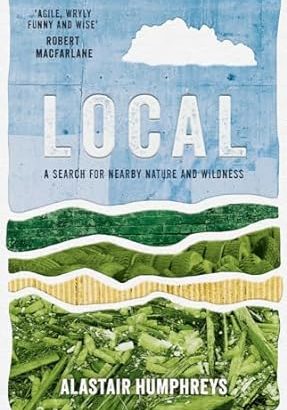When Philip Hensher was 17, in the 80s, he was “that” person everyone knew in their sixth form.
“I was very keen on revolutionary politics,” he says, laughing.
“I thought it was such an obvious solution to all the wrongs of the world. I struck ludicrous poses in the common room. I had friends who broke up CND [Campaign for Nuclear Disarmament] meetings because they were insufficiently pro-Soviet. Extraordinary looking back, but that’s what being 17 is all about.”
He pauses for effect. “All those people are probably respectable Liberal Democrats now.”
This idea – that the pure convictions of youth rarely survive the experience of the real world – is shot through Hensher’s latest novel, A Small Revolution in Germany.
The protagonist, Spike, finds himself in a small coterie of friends with a passion to change the world. But they grow up, they change, becoming writers, politicians and public figures. Only Spike keeps the revolutionary flame alive.
“I think the book presents two quite strict extremes,” says Hensher.
“Hang on to your beliefs and live in a quiet little corner with no effect on anything, or sell out and become… home secretary. We all find ourselves on the spectrum between those two positions.”
Hensher jokes that he has sold out his beliefs and lives in a quiet little corner, but it is striking that one of the early lines in the novel is: “This is a story about politics.” A Small Revolution in Germany is a Brexit novel.
Not overtly, perhaps, but Hensher admits the spark for it came during the summer of the referendum.
“Look, I’m nervous about naming people because the book genuinely isn’t about anyone in particular – but I was at the same college as Michael Gove,” he says.
“I knew him a bit and I liked him a lot and whenever I’ve met him since, I’ve always thought he was a very interesting person. But I’d talk about him at dinner parties, about how he’d read all of Dickens, and people would flatly refuse to believe that he could ever possibly have read any novels at all. There was such vitriol.
“You’d talk about this person who was thoughtful and funny, a committed reader, charming, very good company.
“Then Brexit came along and I kind of realised I wasn’t going to say that any more, which then grew into an idea about what happens if you get people wrong. I started to wonder about the political life and the relationship to the real person behind that.”
A Small Revolution in Germany is a thoughtful novel, moving from the Thatcher years to the present.
It reveals a telling disillusionment with politics. “I did catch myself thinking about what I strongly believed in when I was 17, and what I believe in now,” says Hensher.
“Sometimes I think I don’t have any beliefs at all these days. But maybe that’s a function of how politics is now; because of social media, you can’t do anything wrong any more, which makes it very difficult with some sort of life experience to go into politics at all.”
Surely, Prime Minister Boris Johnson proves that is not true.
“Well, Boris is the absolute exception, and possibly quite a strong reaction to what the system would normally produce, which was Theresa May,” he says. “Theresa clearly has never done anything wrong in her life apart from run through a field. But she never had any understanding of what drives the human race, either.”
Boris Johnson was… conspicuous
Johnson, it transpires, was also a contemporary of Hensher’s at Oxford University.
“He was, er, conspicuous,” says Hensher. “I’ve always had a bit of time for Boris but yes, we are seeing what everyone says about him play out.”
Hensher tells me his motto, appropriated from former prime minister Arthur Balfour: “Nothing matters very much, and few things matter at all.”
You can read that in a number of ways in these heightened times, but he thinks it is optimistic. “The motto, and my book, say that things will take their course and perhaps they won’t be as bad as your fears.”
If that sounds flippant in the midst of the current crisis, then it is only right to point out that Hensher was actually talking about Brexit when he was digging out Arthur Balfour mottos. How quickly times have changed.
But maybe Hensher has a point: his new book is a consolation, about one man refusing to be cowed or disillusioned.
How we all need that right now.
What I’m reading now
The Green Road by Anne Enright
“I just read Actress, the new one, and loved it, so I’m going back through her work now.”
What I’m reading next
“I’m having a bit of a weird Jane Austen revival. I’ve read them millions of times but I went to see [the film] Emma and it was so terrible, so I feel now I have to read Emma to confirm it has a really well put-together plot.”


